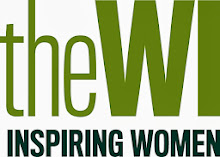One of the WI's Little Black Dress judges and NFWI Associate, journalist Lucy Siegle reminded the nation about the packaging problem it still faces in a recent response in The Observer to a reader’s problem. She also highlighted the WI's campaign on the issue from 2006, which aimed to reduce packaging. Although much has changed for the better; there is generally LESS packaging on groceries and nothing other than what is deemed necessary to prolong the life of the product. In some shops I have noticed a slow move back on some items but nonetheless, the state of packaging is better than it was when the WI first started campaigning. However, that must not breed complacency. The removal of unnecessary packaging at the checkout mentioned by Lucy was one action WI members took but many also returned excessive packaging from a weekly shop to the supermarkets, discussed concerns about packaging with store managers, and refused of plastic bags in favour of bags already owned. Many of us still carry on this campaign, I know I certainly do.
And the maxim remains the same, less packaging in the first place means that less non-recyclable packaging is sent to landfill, which results in less methane gas being produced and less contribution towards climate change.
Another campaign we ran on hazardous chemicals between 2003 and 2006 brought about the WI's booklet "Simple Solutions". I have mentioned this before; it was published to show alternatives to beauty preparations and cleaning products on the market. The aim was to show that chemicals, hazardous or otherwise, need not be used on the skin or in our homes where natural alternatives are available. I notice that the START website is currently introducing eco alternatives that may be purchased, but even some of these could be replaced with natural products that you could make yourself.
Another issue that we have revisited recently is the state of farming in Britain. In 2006 the NFU launched their "Why Farming Matters" campaign that "restated, and in time re-established, the case for a productive, farming industry in 21st century Britain". This time last year I addressed the National Federation of Young Farmers' Clubs Annual Convention in Blackpool, and in the discussion that ensued with young farmers who are passionate about their work, the question was asked if enough was done to promote farming as a career. Does the general public know that technology of the highest calibre is a large part of farming in the early 21st century; do they perceive farming as a profession, or as a way of life? Is it seen as a tradition rather than a business? Those young people would be great adverts for farming, if they had the time and opportunity to promote it but farming is hard work that takes up most of the hours of the day.
Yesterday, I saw some of these issues addressed by the NFU at the launch of their "Farming Delivers for Britain” campaign. Moored at Butler's Wharf Pier, a farm themed boat was the venue for a reception at which Peter Kendall, NFU President, spoke about the new campaign to acknowledge all that Britain's farmers do for us. “Make it British, Make it Local, Make It Happen” is the slogan that celebrates all that farming delivers and stands for in Britain; food, animal welfare, the economy, the environment, careers and cleaner energy.
Life is one big cycle and we should always remember that everything has a connection to everything else!
This year’s National Countryside Week, supported by The Prince’s Countryside Fund, will run from 9th – 16th July. The week provides a great opportunity to get out into the countryside and to raise awareness of the importance of the countryside to the UK so I hope you will join me in getting behind it!
Subscribe to:
Post Comments (Atom)

2 comments:
Well said! Jacqueline. Portishead WI.
Yes have to keep campaigning, don't let them forget. Banwell
Post a Comment